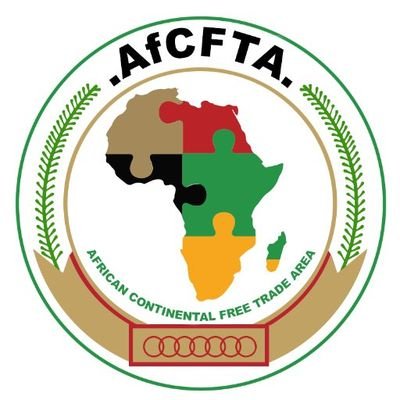As the July 2020 proposed take off of the implementation of the African Continental Free Trade Agreement (AfCFTA) draws closer, economic and trade analysts have listed some steps that should be taken by governments on the continent to ensure successful take-off of the pact in the face of COVID-19 disruptions in most economies.
The AfCFTA is targeted at creating, amongst others, a customs union with free movement of capital and business travelers -the world’s largest – given Africa’s 1.2 billon population and combined GDP of over $2.5 trillion. Commenting on the pact’s implementation imperatives in the face of the COVID-19 pandemic,
Landry Signé, a Senior Fellow in the Global Economy and Development Programme at the Brookings Institution, in a recent research paper, while noting that the stakes for successful implementation are high, projected that if the continental trade agreement is successfully implemented, Africa would have a combined consumer and business spending of $6.7 trillion by 2030.
Bitange Ndemo who teaches at the University of Nairobi’s School of Business in his intervention said : “The newly-appointed African Continental Free Trade Area (AfCFTA) Secretary General, Wamkele Mene, and his team must, by necessity, prioritize communication and advocacy. In recent months, decisions have been made at an unprecedented rate, meaning that many member states are yet to fully appreciate the implications of this mammoth project. Hence the need to inform and educate on what it entails.
“It is imperative that before 1 July 2020, there be strategic engagement with all Ministries of Finance, Trade/Industry and Immigration on the continent to arrive at a common understanding of what lies ahead.
“The AfCFTA Secretariat in Accra, Ghana, should ensure that national budgets have provisions to cushion members from revenue losses from customs duties and other border taxes that will be the first casualties of the free trade area. They should candidly discuss the impending changes in power dynamics by addressing information gaps between policy makers and implementers of policy.”
As the preparation for the pact’s implementation gathers momentum, the Economic Commission for Africa (ECA) has warned the unfolding coronavirus crisis could seriously dent Africa’s already stagnant growth with oil exporting nations losing up to US$ $65 billion in revenues as crude oil prices continue to tumble.
Speaking at a recent Press Conference in Addis Ababa, ECA Executive Secretary, Vera Songwe, said having already strongly hit Africa’s major trading partner, China, COVID-19 was inevitably impacting Africa’s trade.
She said although a few COVID-19 cases had been reported in 15 countries so far, the crisis is set to deal African economies a severe blow, forecasting that “Africa may lose half of its GDP with growth falling from 3.2% to about 2 % due to a number of reasons which include the disruption of global supply chains,”
She said the continent would need up to US$ 10.6 billion in unanticipated increases in health spending to curtail the virus from spreading, while on the other hand revenue losses could lead to unsustainable debt. Songwe projected that COVID-19could reduce Nigeria’s total exports of crude oil in 2020 by between US$ 14 billion and US$ 19 billion.
The ECA estimates COVID-19 could lead to Africa’s export revenues from fuels falling at around US$ 101 billion in 2020. Despite the COVID-19 threat.
Director of the ECA’s Regional Integration and Trade Division Stephen Karingi, said at the same forum that there was an opportunity the continent could take advantage of as trading within the African Continental Free Trade Area (AfCFTA) is set to commence this July.
“The intra-African market could help mitigate some of the negative effects of COVID-19 through limiting dependence on external partners, especially in pharmaceuticals and basic food,” said Mr. Karingi, adding that diversifying economies away from fuel-driven was vital beyond COVID-19.
Karingi harped on the need for the continent to urgently implement the AfCFTA as he urged African countries who export drugs to prioritize selling on the African market.
Daily Trust regrets the mixup in quotations earlier attributed to Landry Signé, a Senior Fellow in the Global Economy and Development Programme at the Brookings Institution. The correction has been made and the quote attributed Bitange Ndemo who teaches at the University of Nairobi’s School of Business.

 Join Daily Trust WhatsApp Community For Quick Access To News and Happenings Around You.
Join Daily Trust WhatsApp Community For Quick Access To News and Happenings Around You.



